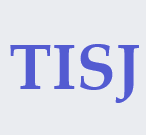Conflict of Interest Policy: Difference between revisions
No edit summary |
No edit summary |
||
| Line 25: | Line 25: | ||
'''How do I make a declaration?''' | '''How do I make a declaration?''' | ||
If you are submitting to or publishing your article in a journal which requires you to make a Declaration of Conflicting Interests, please include such a declaration at the end of your manuscript after any Acknowledgements and prior to the Funding, Notes (if relevant) and References, under the heading 'Conflict of Interest'. If no conflict exists, please state that 'The Author(s) declare(s) that there is no conflict of interest'. | If you are submitting to or publishing your article in a journal which requires you to make a Declaration of Conflicting Interests, please include such a declaration at the end of your manuscript after any Acknowledgements and prior to the Funding, Author Contributions, Notes (if relevant) and References, under the heading 'Conflict of Interest'. If no conflict exists, please state that 'The Author(s) declare(s) that there is no conflict of interest'. | ||
For more information, please refer to [[Publication Ethics and Publication Misconduct Statement]]. | For more information, please refer to [[Publication Ethics and Publication Misconduct Statement]]. | ||
Revision as of 09:08, 20 January 2024
All authors are requested to disclose any actual or potential conflict of interest including any financial, personal or other relationships with other people or organizations within three years of beginning the submitted work that could inappropriately influence, or be perceived to influence, their work.
The Committee on Publication Ethics (COPE) states in its Guidelines on Good Publication Practice (2003) that:
‘Conflicts of interest arise when authors, reviewers, or editors have interests that are not fully apparent and that may influence their judgments on what is published. They have been described as those which, when revealed later, would make a reasonable reader feel misled or deceived.’
Many scholars, researchers and professionals may have potential conflicts of interest, that could have an effect on – or could be seen to – have an effect on their research. As a result, TISJ requires a formal declaration of conflicting interests enabling a statement to be carried within the paginated published article.
A potential conflicting interest might arise from relationships, allegiances or hostilities to particular groups, organizations or interests, which may influence excessively one’s judgments or actions. The issue is particularly sensitive when such interests are private and/or may result in personal gain.
Articles will be evaluated fairly and will not necessarily be rejected when any competing interests are declared.
Examples of conflicts of interest might include the following, although it is not an exhaustive list:
- Having received fees for consulting.
- Having received research funding.
- Having been employed by a related company.
- Holding stocks or shares in a company which might be affected by the publication of your paper.
- Having received funds reimbursing you for attending a related symposia, or talk.
If there are other interests which the reasonable reader might feel has affected your research you may also wish to declare them.
- Please note that it is not expected that details of financial arrangements be disclosed when a competing interest is declared.
How do I make a declaration?
If you are submitting to or publishing your article in a journal which requires you to make a Declaration of Conflicting Interests, please include such a declaration at the end of your manuscript after any Acknowledgements and prior to the Funding, Author Contributions, Notes (if relevant) and References, under the heading 'Conflict of Interest'. If no conflict exists, please state that 'The Author(s) declare(s) that there is no conflict of interest'.
For more information, please refer to Publication Ethics and Publication Misconduct Statement.
